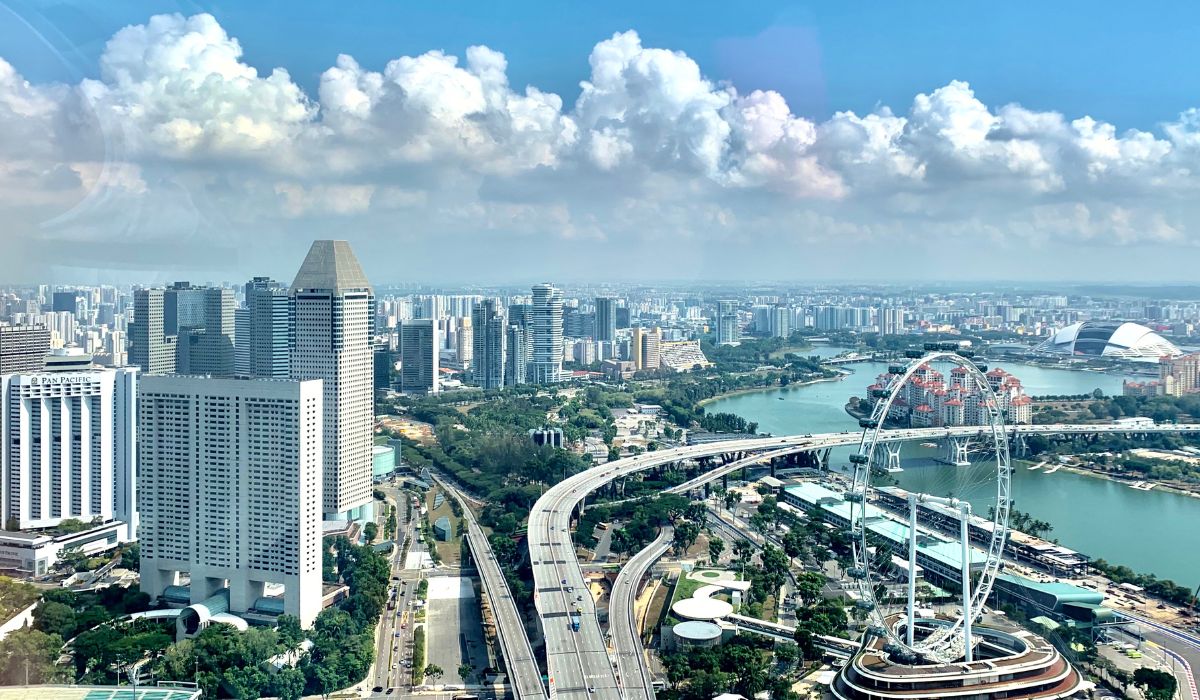Are You Earning More Than The Median Salary In Singapore?
It may not seem important, but the median salary of your country is something you must know especially if you’ve been working for a long time. Finding out this key information will allow you to assess if you’re being paid fairly or not.
Although your industry and position in your company dictates how much you’re earning, comparing your current salary with the median salary Singapore is advisable. After all, the more money you’re earning, the more you can save for your needs and retirement.
In this article, we’ll take a deep dive on how much Singaporeans earn so you can assess how much your monthly salary stacks up.
Here at OMY Singapore, you will discover the following:
What Is Median Salary In Singapore?
Every year, MOM measures the gross income of workers in Singapore. In 2022, this was at S$5,070 per month. This figure is 8% higher than the 2021 median salary which was at S$4,680.
Over the past decade, the median salary in Singapore has increased 46% or an average of more than 3.8% per year.
This year’s median salary is inclusive of the CPF contributions from employers. Excluding employer CPF contributions, the median monthly salary of workers in Singapore is S$4,500.
If you’re earning higher than the median income, it means you are making more money than 50% of people in the workforce. If not, then don’t be discouraged. You can still increase your average salary in SG.
What Is Gross Salary?
Gross income is the total income you get from your employment. According to MOM, the gross salary in Singapore is the monthly salary before the deduction of the CPF contributions, as well as the personal income tax. It is made up of overtime pay, commissions, allowances, tips, 1/12 of the annual bonus, and basic wages.
What Is Minimum Wage?
In Singapore, various sectors are included in the Progressive Wage Model. This was introduced in 2012 by the NTUC to improve the income of many people.
In the retail industry, around 19,000 lower-wage full-time workers will be receiving an 8.4% to 8.5% increase annually for three years. This will be from 1 September 2022 to 31 August 2025.
Aside from the minimum wage, the Singapore government also implemented the Local Qualifying Salary. This means that firms must hire full-time local workers that should be paid at least S$1,400. This will benefit more than 159,000 lower-wage workers who are not covered by the PWM.
What Is The Median Salary In Singapore Per Age Group?
Still not earning the median salary in Singapore? Don’t worry. If you’re just starting your career, it’s very unlikely that you’ll immediately be earning the Singapore median income. But as you get more experience, you’ll increase your paycheck.
In the table below, you’ll observe that the median salary in Singapore typically increases as people grow older and go down after they reach 44 years old. Of all ages, the biggest change from the 2022 vs. 2021 salary is with the 15 to 19 age group.
| Age Group | Median Monthly Salary for 2022 | Median Monthly Salary for 2021 | Percent change |
|---|---|---|---|
| 15 to 19 | $1,638 | $1,170 | 40.0% |
| 20 to 24 | $2,925 | $2,691 | 8.7% |
| 25 to 29 | $4,446 | $4,095 | 8.6% |
| 30 to 34 | $5,792 | $5,222 | 10.9% |
| 35 to 39 | $6,825 | $6,102 | 11.8% |
| 40 to 44 | $6,825 | $6,825 | 0% |
| 45 to 49 | $6,581 | $5,958 | 10.5% |
| 50 to 54 | $5,850 | $5,070 | 15.4% |
| 55 to 59 | $4,323 | $3,729 | 15.9% |
| 60 and over | $2,621 | $2,543 | 3.1% |
Men Vs Women: Median Salary In Singapore
The gender pay gap is a topic frequently discussed in all parts of the world. It turns out, there’s such a thing as a pay gap in Singapore, which is around 10%. In 2022, the median salary for men is S$5,450. In 2021, it was S$4,875. For women, the median salary per month in 2022 is S$4,948, and S$4,437 in 2021.
More From OMY: Singaporean women prioritise Investment and savings, according to survey
Female teens usually have better access to high-paying work, and men have to go through the National Service and reservist cycles in the first decade of their careers. The wages of females usually start to fall behind after having their first child.
| Age Group | Median Monthly Salary for 2022 | Median Monthly Salary for 2021 | Percent change |
|---|---|---|---|
| 15 to 19 | $1,638 | $1,170 | 40.0% |
| 20 to 24 | $2,925 | $2,691 | 8.7% |
| 25 to 29 | $4,446 | $4,095 | 8.6% |
| 30 to 34 | $5,792 | $5,222 | 10.9% |
| 35 to 39 | $6,825 | $6,102 | 11.8% |
| 40 to 44 | $6,825 | $6,825 | 0% |
| 45 to 49 | $6,581 | $5,958 | 10.5% |
| 50 to 54 | $5,850 | $5,070 | 15.4% |
| 55 to 59 | $4,323 | $3,729 | 15.9% |
| 60 and over | $2,621 | $2,543 | 3.1% |
What’s The Labour Force Like In Singapore?
In 2022, the employment rate in the country increased to 67.5%, probably as a result of the pandemic finally being over. This is higher than the pre-COVID figure in 2029 which settled at 65.2%. When compared to other countries, Singapore placed third when it comes to the overall employment rate.
Meanwhile, the unemployment rate fell from 3.4% to 2.6% for PMETs (Professionals, Managers, Executives, and Technicians). For non-PMETs, it’s currently at 5.1%, compared to the last 4.4% figure.
Around 64% of the labour force in Singapore is made up of PMETs, which means most of the workforce is educated.
Highest Paying Jobs In Singapore
Here’s a look at the jobs with the highest average annual income in Singapore according to the Management Development Institute of Singapore.
| Job Position | Salary per year |
|---|---|
| Chief Financial Officer | S$300,000 to S$450,000 |
| HR Director | S$240,000 to S$310,000 |
| IT Cyber Security Manager/Specialist | S$190,000 to S$350,000 |
| Supply Chain & Logistics Specialist/ Head of Global Sourcing | S$180,000 to S$400,000 |
| Regional Marketing Manager (Consumer Goods, e-commerce) | S$180,000 to S$240,000 |
| Head of Marketing/Communications Director | S$160,000 to S$250,000 |
| Research & Development Director (Life Sciences/Biomedical Engineering) | S$150,000 to S$260,000 |
| Nurse Manager / Nursing Director | S$110,000 to S$200,000 |
| Data Engineer/Network Engineer | S$80,000 to S$180,000 |
| Project Manager | S$80,000 to S$200,000 |
How To Increase Your Salary In Singapore
Want to increase your income more than the median salary in Singapore? Follow these tips below.
Go Back To School Or Earn Certifications
One of the best ways to increase your salary in Singapore is to further your education or earn certifications in your field. With a highly educated workforce, the competition for high-paying jobs can be fierce in the country.
Therefore, having additional qualifications or degrees can set you apart from your peers and increase your earning potential. Many employers offer training and certification programs so take advantage of these opportunities to improve your skills and get a better annual income in Singapore.
Negotiate Your Salary
Don’t be afraid to negotiate your salary during your hiring process or performance reviews. Research the median salary for your job position and experience level in Singapore and use that as a baseline for your negotiations. Highlight your achievements and contributions to the company and explain why you deserve a higher salary.
Get A Second Job
While getting a second job may seem daunting, it can significantly increase your income. In Singapore, there are plenty of opportunities for part-time work, especially in the service and hospitality industries. Consider taking on a freelance gig or starting a side hustle to supplement your average salary in SG. Just make sure to manage your time wisely and avoid burning out.
Network And Build Relationships
Networking is essential to career growth and salary increases. Attend industry events and conferences, connect with professionals in your field, and build meaningful relationships. These connections can lead to job opportunities, promotions, and higher salaries.
Consider A Job Switch
If you feel like you’ve hit a ceiling in your current job and there is no room for growth or salary increase, consider switching to a different company or industry. Look for a job opening in fields that interest you and offer a higher average wage in SIngapore.
A Word From OMY
So what is a good salary in Singapore? The answer depends on your lifestyle choices. That said, the higher average pay in Singapore makes it easy for you to fulfil all your needs.
Keep in mind that your earnings will still largely depend not only on your job, but also on when you started your career, your level of education, and the company you’re working for, among many other factors. If you’re earning more than the median salary in Singapore, consider yourself lucky. If not, challenge yourself to increase your earnings.
More from OMY: How to Earn Passive Income in Singapore: Your Ultimate Guide







